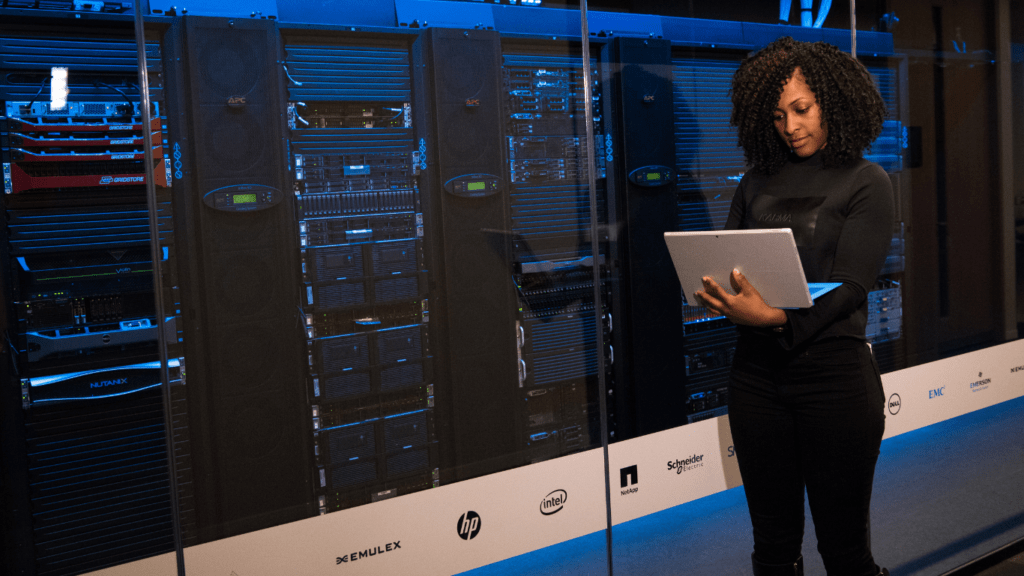As we step into 2024, the landscape of open-source software projects continues to evolve, presenting exciting trends and innovations. The world of open source is dynamic, with new technologies and methodologies shaping the way developers collaborate and create. In this article, I’ll delve into the key trends that are expected to drive the open-source community forward in the coming year.
From the rise of decentralized applications to the growing importance of sustainability in software development, 2024 promises to be a year of significant transformation in the open-source ecosystem. As a seasoned observer of the tech industry, I’m excited to share insights on the trends that will define the future of open-source software projects and empower developers worldwide. Stay tuned to discover the cutting-edge developments that are set to shape the open-source landscape in the year ahead.
Overview of Open Source Software Projects
Exploring the landscape of open-source software projects in 2024 reveals an ever-changing environment where trends and innovations shape the future. As I delve into the dynamic realm of open source, I witness the impact of new technologies and methodologies on developer collaboration and innovation. In the upcoming year, I anticipate key trends that will drive the open-source community forward, such as the increasing prominence of decentralized applications and the growing emphasis on sustainability in software development. These trends are set to redefine the future of open-source software projects, providing a solid foundation to empower developers worldwide.
Key Technologies Shaping Open Source in 2024
In 2024, open-source software projects continue to be heavily influenced by emerging technologies. As these technologies advance, they shape the way developers collaborate and innovate within the open-source community.
Artificial Intelligence and Machine Learning
AI and ML technologies are at the forefront of driving innovation in open-source projects for 2024. They streamline development processes, enhance the user experience, and enable more intelligent solutions. Integrating AI and ML algorithms into open-source projects has become increasingly common, empowering developers to create sophisticated applications and tools.
Blockchain
Blockchain technology remains a pivotal force in open-source software projects for 2024. Its decentralized nature, transparency, and security features revolutionize various industries. Open-source initiatives leveraging blockchain offer opportunities for secure data sharing, smart contracts, and decentralized applications. The adoption of blockchain in open-source projects signifies a shift towards trustless systems and strengthened data integrity.
Emerging Open Source Project Management Practices
Exploring the domain of Open Source Software Projects for 2024 unveils intriguing trends, with a specific focus on the evolution of project management practices. In this dynamic landscape, innovative approaches are reshaping how teams collaborate and deliver exceptional open-source solutions. Adapting to the ever-changing demands of the industry is crucial for project success.
- Embracing Agile Methodologies:
Implementing Agile practices has become paramount in managing open-source projects effectively. Agile frameworks, such as Scrum and Kanban, offer flexibility, transparency, and iterative development cycles. Teams that embrace Agile methodologies can respond swiftly to changes, enhance collaboration, and deliver high-quality software increments regularly. - Leveraging DevOps Principles:
Integration of DevOps principles in project management is gaining momentum in the open-source community. DevOps promotes a culture of shared responsibility, automation, and continuous delivery. By breaking down silos between development and operations teams, projects can achieve faster deployment, improved quality, and increased innovation. - Adopting Community-Centric Development:
Community-centric development practices play a vital role in the success of open-source projects. Building an engaged and diverse community fosters creativity, accelerates innovation, and ensures sustainability. Emphasizing inclusivity, transparency, and effective communication within the community enhances collaboration and drives project growth. - Implementing Effective Governance Models:
Establishing robust governance models is essential for ensuring project stability and longevity. Clear guidelines for decision-making, contribution policies, and conflict resolution mechanisms contribute to a healthy project ecosystem. By defining roles, responsibilities, and processes, projects can maintain transparency, mitigate risks, and attract new contributors. - Embracing Remote Collaboration Tools:
With the rise of remote work, open-source projects are turning to collaborative tools to enable seamless communication and coordination among distributed teams. Utilizing project management platforms, version control systems, and communication channels enhances productivity, fosters teamwork, and enables efficient project tracking and monitoring.
In the realm of Open Source Project Management Practices for 2024, staying abreast of these emerging trends and adopting innovative strategies is imperative for project success. By embracing Agile methodologies, leveraging DevOps principles, fostering community engagement, implementing effective governance models, and utilizing remote collaboration tools, open-source projects can navigate challenges and drive impactful contributions to the digital ecosystem.
Potential Challenges for Open Source Projects in 2024
Exploring the future landscape of open-source software projects in 2024 reveals potential challenges that may impact the industry. Some of these challenges include:
Sustainability Concerns:
Balancing the sustainability of open-source projects with the growing demand for innovative features and solutions poses a significant challenge. Finding sustainable funding models to support ongoing development efforts is crucial for long-term project success.
Maintainer Burnout:
Maintainers play a vital role in the maintenance and development of open-source projects. However, the increasing workload, combined with the pressure to meet project demands, can lead to maintainer burnout. Addressing the well-being of maintainers is essential to ensure project continuity.
Security Vulnerabilities:
As open-source projects continue to expand in complexity and size, the risk of security vulnerabilities also escalates. Ensuring robust security measures and timely vulnerability assessments are imperative to protect projects from potential threats.
Community Engagement:
Sustaining active community engagement and participation remains a challenge for many open-source projects. Encouraging meaningful contributions, fostering a collaborative environment, and cultivating a diverse community are essential for project growth and vitality.
Legal Compliance:
Adhering to legal regulations and licensing requirements poses a challenge for open-source projects. Maintaining compliance with various licenses, addressing intellectual property issues, and navigating legal complexities require careful attention to prevent conflicts and ensure project credibility.
Navigating these challenges in 2024 demands proactive strategies, effective governance models, and continuous adaptability to foster innovation and drive the success of open-source projects in the dynamic technology landscape.


 Christopher Crick is a valued helper at The Code Crafters Hub, where he plays a crucial role in building and enhancing the platform. With a keen eye for detail and a deep understanding of software development, Crick has been instrumental in refining the site's features and ensuring that it delivers top-notch content to its users. His contributions range from technical support to content development, helping to shape the hub into a premier resource for software professionals and enthusiasts.
As a dedicated team member, Crick's efforts are focused on maintaining the high standards that The Code Crafters Hub is known for. His expertise in various aspects of technology ensures that the platform remains up-to-date with the latest advancements and trends. Located in Warren, MI, Crick's commitment to excellence supports the hub's mission to provide valuable insights into web development, game development, IoT, and cybersecurity.
Christopher Crick is a valued helper at The Code Crafters Hub, where he plays a crucial role in building and enhancing the platform. With a keen eye for detail and a deep understanding of software development, Crick has been instrumental in refining the site's features and ensuring that it delivers top-notch content to its users. His contributions range from technical support to content development, helping to shape the hub into a premier resource for software professionals and enthusiasts.
As a dedicated team member, Crick's efforts are focused on maintaining the high standards that The Code Crafters Hub is known for. His expertise in various aspects of technology ensures that the platform remains up-to-date with the latest advancements and trends. Located in Warren, MI, Crick's commitment to excellence supports the hub's mission to provide valuable insights into web development, game development, IoT, and cybersecurity.
